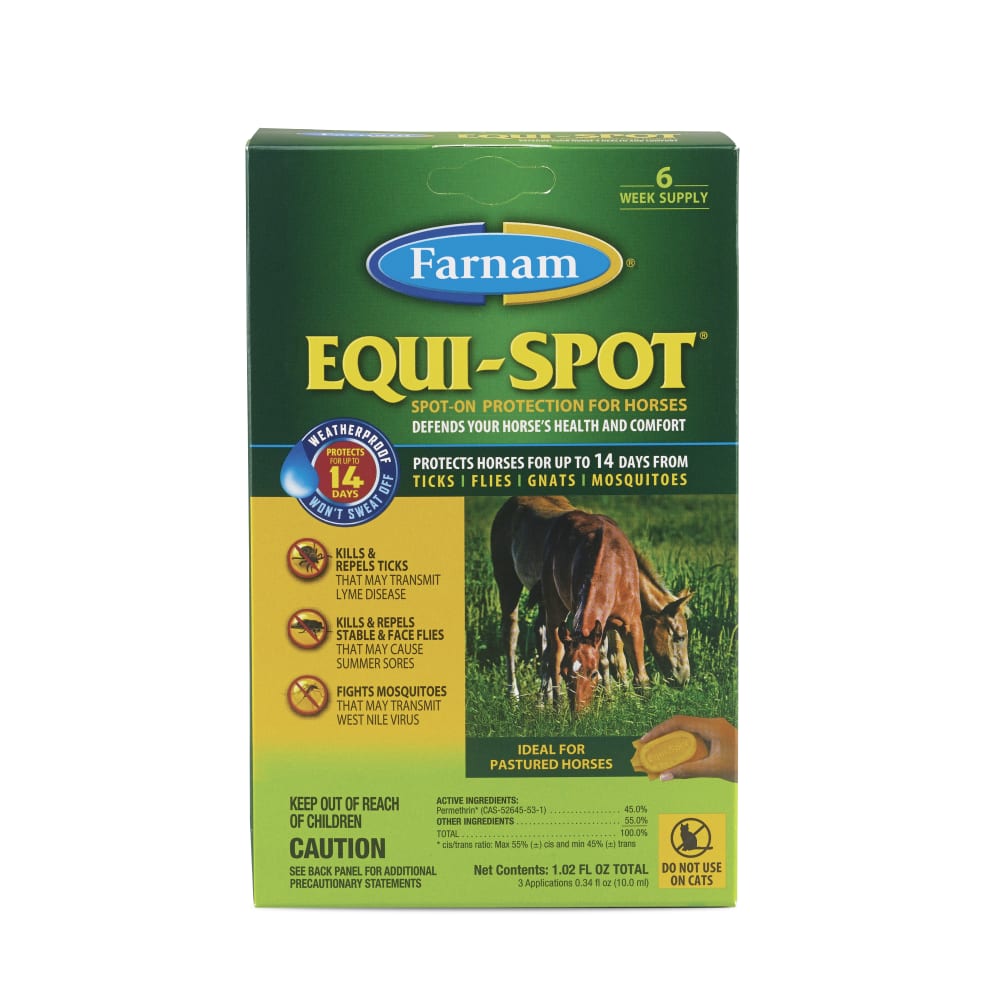Is Your Horse at Risk for Tapeworm Infection

Using the same dewormer on every horse in the barn every two months year-round is so yesterday. Actually, that outdated routine is decades old, but unfortunately many horse owners still adhere to it.
Overuse of deworming drugs has allowed some parasites to develop resistance against specific drugs. For example, two of the most common internal equine paratistes - small strongyles and roundworms (ascarids) - have shown widespread resistance to certain classes of dewormers. Since there are only three classes of deworming drugs that are used in horses, resistance is a serious concern.
If you're up to date on deworming protocol, you know that an effective program should be based on the season, climate, your particular horse and his exposure to parasites. A comprehensive program like this ensures adequate parasite control without overtreatment.
Tapeworm Exposure
One common internal equine parasite is the tapeworm, Anoplocephala perfoliata. Tapeworm infections can be found in horses across the country and in animals of all ages, except for young foals.
Certain regions have a higher prevalence of tapeworms than others. For example, in the upper Midwest, infection rates can be as high as 95%, while in Southern states the rate is as low as 82%. Spring is an ideal time for transmission of tapeworms.
Like many other parasites, tapeworms typically infect horses when they’re grazing. If your horse is kept in a stall, a dirt corral or lot, or any other stabling arrangement that gives him zero opportunity to graze, his risk of tapeworm exposure is significantly reduced but not completely eliminated.
The tapeworm's life cycle takes place both within the horse and within oribatid grass mites, which serve as vector or intermediate host. For the tapeworm to mature, part of the process must take place inside the mite where tapeworm eggs develop.
After the grazing horse inadvertently swallows these infected mites, the mites die inside the horse. This frees the tapeworm larvae, which then migrate through the horse's gastrointestinal tract and attach themselves to the lining of the intestine. There they develop into adult tapeworms able to release eggs.
Tapeworm development in the horse takes anywhere from four to six weeks, while development in the mite typically takes two to four months, therefore the entire life cycle of the tapeworm ranges from three to six months.
The body of an adult tapeworm consists of segments, known as proglottids, each of which is self-sufficient and contains both male and female reproductive organs. New proglottids are continually being produced and pushed towards the tail of the tapeworm. As the proglottid matures, it is filled with fertilized eggs, literally becoming a sac of eggs.
These segments detach from the body of the tapeworm and pass into the environment in the manure. Once in the soil, the eggs are eaten by oribatid mites and the cycle continues.
"Even small burdens of tapeworms can cause intestinal irritation and altered motility, leading to colic in some horses," observes SallyAnne L. DeNotta, DVM, PhD, DACVIM, Clinical Assistant Professor, Large Animal Medicine at the University of Florida.
Horses with heavy tapeworm infections may exhibit gastrointestinal disturbances, including colic and unthriftiness. Severe tapeworm infection can cause intestinal irritation in the horse. Fatal intestinal blockage can occur as worms accumulate in the ileocecal junction — the three-way junction between the small intestine, large intestine and cecum.
Identifying Tapeworm Presence
Your veterinarian may have recommended fecal testing your horse as part of your deworming program. This is an excellent idea, as fecal testing is an inexpensive way to find out if your deworming plan is working. It also helps identify whether your horse carries a heavy or light parasite egg count, valuable information in determining how frequently — or infrequently — he needs treatment.
Unlike strongyles, however, tapeworm eggs aren’t easily identified using a standard fecal egg count test, and because they're dispersed sporadically, they may not even show up in a single fecal test.
If you have dogs or cats, you may have spotted something resembling grains of rice in their feces. These are proglottids, which are basically little bags full of tapeworm eggs. In horses however, proglottids tend to break up and the eggs disperse before the manure is passed by the horse. Because you won't typically see intact proglottids in horse manure, you can't determine if he has tapeworms by simply checking his manure.There has been research into using blood and saliva tests to check titers and determine if a horse is positive for tapeworms (meaning he has at least 20 adult tapeworms). Such testing isn’t readily available to U.S. horse owners yet, although it may be in the future.
Current recommendations are to treat a horse for tapeworms based on the risk of exposure. This depends on region, climate and when/if the horse is exposed to grass where mites carry tapeworm eggs.
"Because it’s difficult to determine if your horse is actually harboring tapeworms, the American Association of Equine Practitioners [AAEP] currently recommends that horses be dewormed for tapeworms at least once a year," says DeNotta.
Late spring and/or late fall are ideal times to deworm for tapeworms. Discuss your horse's exposure and risk of tapeworm infection with your veterinarian. He/she can help you determine the best timing for treatment.
Be aware that not every dewormer drug is labeled against tapeworms. "Effective treatments are praziquantel, often combined with ivermectin or moxidectin, or a double dosage of pyrantal pamoate," says DeNotta.
Find the latest deworming recommendations in the Internal Parasite Control Guidelines from the American Association of Equine Practitioners at https://aaep.org/horsehealth/internal-parasites-strategies-effective-parasite-control
Life with Horses Newsletter
Sign up now to stay connected with free helpful horse care tips, product updates, and special offers.
Featured Products
Related Articles
Daily Dewormers: A Different Approach to Parasite Control
If you’re like most horse owners, you’re under the impression that deworming is something that takes place a few times a year. But did you know there’s a different way to protect your horse from certain parasites? Daily dewormers are intended as a barrier against parasites and therefore used every day as compared to “purge dewormers,” which are administered weeks or months apart...


